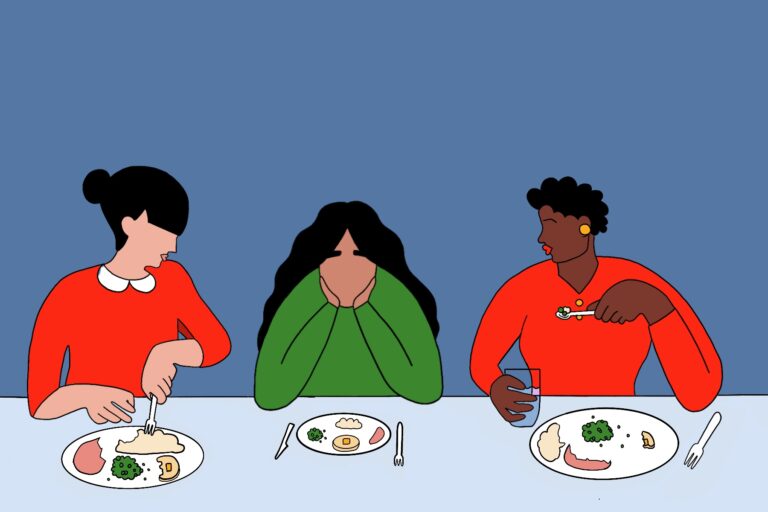Eating disorders are mental health conditions characterized by unhealthy eating patterns and distorted perceptions of body weight or shape. They can have a serious impact on physical and mental health.
Types of Eating Disorders
- Anorexia Nervosa: An eating disorder characterized by an intense fear of gaining weight, leading to restricted eating and unhealthy weight loss.
- Bulimia Nervosa: An eating disorder characterized by binge eating followed by purging, such as vomiting or excessive exercise.
- Binge Eating Disorder: An eating disorder characterized by frequent episodes of binge eating, often followed by feelings of guilt or shame.
- Avoidant/Restrictive Food Intake Disorder (ARFID): An eating disorder characterized by a persistent lack of interest in eating or specific foods, leading to insufficient nutrient intake.
Causes of Eating Disorders
The exact causes of eating disorders are complex and not fully understood. A combination of biological, psychological, and environmental factors is believed to play a role.
Symptoms of Eating Disorders
Symptoms of eating disorders can vary depending on the type of disorder, but may include:
- Unhealthy eating patterns: Restrictive eating, binge eating, or purging.
- Distorted body image: A negative or distorted perception of one’s body.
- Weight fluctuations: Significant weight loss or gain.
- Emotional distress: Feelings of guilt, shame, or anxiety.
- Physical symptoms: Fatigue, dizziness, and other physical problems.
Treatment for Eating Disorders
Treatment for eating disorders typically involves a combination of therapy, medication, and nutritional support.
- Therapy: Cognitive-behavioral therapy (CBT) is often used to help individuals with eating disorders change negative thought patterns and behaviors.
- Medication: In some cases, medication may be prescribed to help manage symptoms.
- Nutritional Support: Registered dietitians can help individuals develop healthy eating plans and address nutritional deficiencies.
Eating disorders are serious conditions that require professional treatment. If you or someone you know is struggling with an eating disorder, it is important to seek help.
Would you like to learn more about a specific type of eating disorder or the treatment options available?
